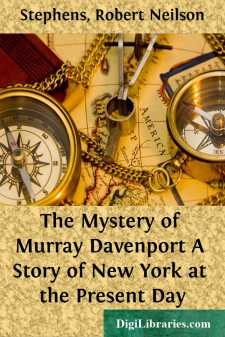Categories
- Antiques & Collectibles 13
- Architecture 36
- Art 48
- Bibles 22
- Biography & Autobiography 813
- Body, Mind & Spirit 142
- Business & Economics 28
- Children's Books 17
- Children's Fiction 14
- Computers 4
- Cooking 94
- Crafts & Hobbies 4
- Drama 346
- Education 46
- Family & Relationships 57
- Fiction 11829
- Games 19
- Gardening 17
- Health & Fitness 34
- History 1377
- House & Home 1
- Humor 147
- Juvenile Fiction 1873
- Juvenile Nonfiction 202
- Language Arts & Disciplines 88
- Law 16
- Literary Collections 686
- Literary Criticism 179
- Mathematics 13
- Medical 41
- Music 40
- Nature 179
- Non-Classifiable 1768
- Performing Arts 7
- Periodicals 1453
- Philosophy 64
- Photography 2
- Poetry 896
- Political Science 203
- Psychology 42
- Reference 154
- Religion 513
- Science 126
- Self-Help 84
- Social Science 81
- Sports & Recreation 34
- Study Aids 3
- Technology & Engineering 59
- Transportation 23
- Travel 463
- True Crime 29
The Continental Dragoon A Love Story of Philipse Manor-House in 1778
Categories:
Description:
Excerpt
THE RIDERS.
I dare say ’tis a wild, foolish, dangerous thing; but I do it, nevertheless! As for my reasons, they are the strongest. First, I wish to do it. Second, you’ve all opposed my doing it. So there’s an end of the matter!”
It was, of course, a woman that spoke,—moreover, a young one.
And she added:
“Drat the wind! Can’t we ride faster? ’Twill be dark before we reach the manor-house. Get along, Cato!”
She was one of three on horseback, who went northward on the Albany post-road late in the afternoon of a gray, chill, blowy day in November, in the war-scourged year 1778. Beside the girl rode a young gentleman, wrapped in a dark cloak. The third horse, which plodded a short distance in the rear, carried a small negro youth and two large portmanteaus. The three riders made a group that was, as far as could be seen from their view-point, alone on the highway.
There were reasons why such a group, on that road at that time, was an unusual sight,—reasons familiar to any one who is well informed in the history of the Revolution. Unfortunately, most good Americans are better acquainted with the French Revolution than with our own, know more about the state of affairs in Rome during the reign of Nero than about the condition of things in New York City during the British occupation, and compensate for their knowledge of Scotch-English border warfare in remote times by their ignorance of the border warfare that ravaged the vicinity of the island of Manhattan, for six years, little more than a century ago.
Our Revolutionary War had reached the respectable age of three and a half years. Lexington, Bunker Hill, Brooklyn, Harlem Heights, White Plains, Trenton, Princeton, the Brandywine, German-town, Bennington, Saratoga, and Monmouth—not to mention events in the South and in Canada and on the water—had taken their place in history. The army of the King of England had successively occupied Boston, New York, and Philadelphia; had been driven out of Boston by siege, and had left Philadelphia to return to the town more pivotal and nearer the sea,—New York. One British commander-in-chief had been recalled by the British ministry to explain why he had not crushed the rebellion, and one British major-general had surrendered an army, and was now back in England defending his course and pleading in Parliament the cause of the Americans, to whom he was still a prisoner on parole. Our Continental army—called Continental because, like the general Congress, it served the whole union of British-settled Colonies or States on this continent, and was thus distinguished from the militia, which served in each case its particular Colony or State only—had experienced both defeats and victories in encounters with the King’s troops and his allies, German, Hessian, and American Tory. It had endured the winter at Valley Forge while the British had fed, drunk, gambled, danced, flirted, and wenched in Philadelphia. The French alliance had been sanctioned. Steuben, Lafayette, DeKalb, Pulaski, Kosciusko, Armand, and other Europeans, had taken service with us....







